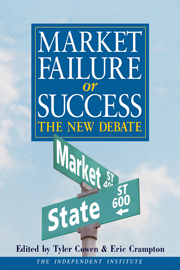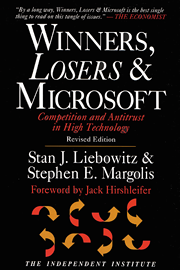How did it come about that our financial system allowed bad loans to be made, condoned, and even celebrated?
The current (and wrong) wisdom is that unscrupulous lenders were taking advantage of poorly informed borrowers. But the “mortgage innovations” that are largely the responsibility of the federal government and heralded by regulators, politicians, government-sponsored enterprises and academics are the true culprits of the mortgage meltdown.
Without these innovations we would not have seen prime mortgages made with no down payments, which is what happens when individuals use a second mortgage to cover the down payment of the first. Nor would we have seen “liar loans” where the applicant was allowed to make up an income number in cases where they weren’t putting up an enormous down payment.
The federal government and all the agencies involved with regulating housing and mortgages are proud of their mortgage innovations because these increased homeownership.
This “housing establishment” refuses, however, to take the blame for the flip side of its efforts: first, the bubble in home prices caused by the lowering of underwriting standards; and second, the bubble’s bursting, which resulted in almost catastrophic consequences to the economy as a whole, in addition to the financial difficulties faced by some of the very homeowners the housing establishment claims to be trying to benefit.
The evidence on foreclosures is consistent with an overall loosening of underwriting standards, not with the subprime story being put forward by the housing establishment. The key facts are that both subprime and prime loans had large increases in foreclosures at the same time.
The main driver of foreclosures was adjustable rate loans, both prime and subprime. Therefore, any understanding of the current crisis must account for this fact. The subprime boogeyman theory does not.
The story that currently seems to fit best with the evidence suggests that housing speculators were taking out many loans with the hope of a quick and profitable turnover. These housing speculators did not much care about the terms of their mortgages because they didn’t expect to be making payments for very long.
But it is clear why they would prefer adjustable-rate mortgages. This is also consistent with speculators often lying about their income on their loan applications and taking out teaser rates so they would qualify for larger loans, so they could make a bigger bet on housing. Under this reasoning, borrowers are adults, not witless pawns.
When the housing bubble stopped growing, according to this hypothesis, these speculators turned and ran. Left holding the mortgage-debt bag are the investors who lended money to these speculators. The size of this bag was so massive that fear of being left holding it brought the financial system to its knees.
There is nothing wrong with speculation or speculators. At fault is a mortgage system run by flexible underwriting standards that allowed these speculators to make bets on the housing market with other people’s money. It was a system that invited the applicant to lie about income. It was a system that induced applicants to watch a video instead of providing solid evidence about their financial condition.
Even that would not be so bad if the people making the money available were aware of its use and knew that they would have recourse to getting their money back. But the money for the speculation was made available by lenders who believed the housing and regulatory establishment when this housing and regulatory establishment said that such loans were safe.
Since the housing and regulatory establishment consisted of mighty government agencies and highly educated academics, it was not unreasonable for the lenders to assume that the claims made for flexible underwriting standards were correct. Unfortunately the claims were not correct, although most of the housing and regulatory establishment continue to argue otherwise.
Hindsight is the best sight, they say. Unfortunately, the housing establishment and our political leaders seem intent on not learning from the past.









